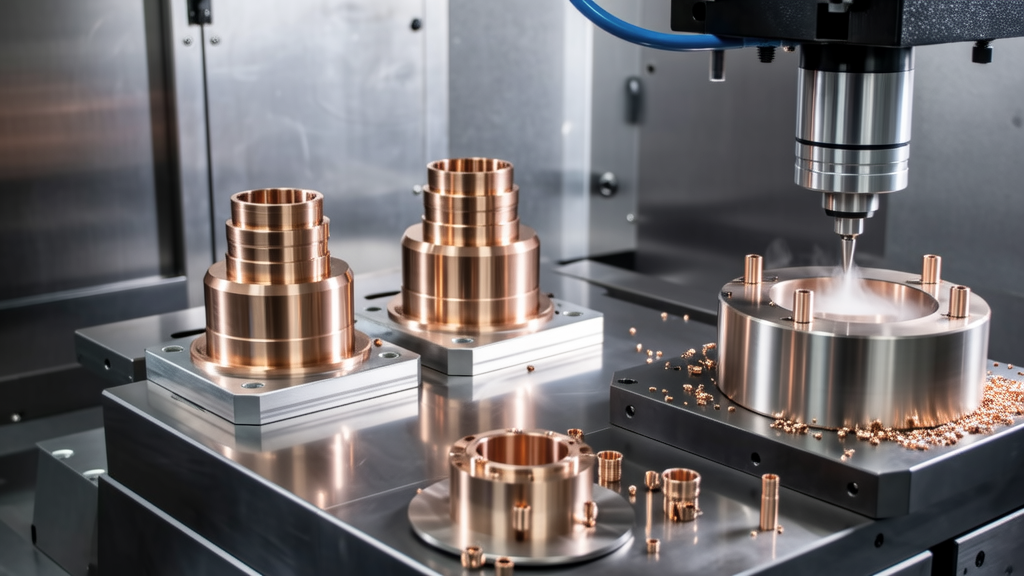Understanding Technical Capabilities
First off, it’s crucial to get a clear picture of the technical capabilities of the companies you’re considering. A manufacturer might boast state-of-the-art equipment, but can they handle the specific requirements of your project? For instance, if you’re working with intricate designs that require precise tolerances, ensure that the CNC machine shop can actually deliver those specifications. I remember once working with a supplier who promised the world but ended up delivering parts that were outside tolerances, leading to wasted time and resources. Always ask for examples of previous work and if possible, customer references to gauge their reliability.
Quality Control Measures
Next, look into their quality control processes. This is a key aspect that can’t be overlooked. You wouldn’t want to receive subpar products that require extensive rework or, worse, are entirely unusable. I once helped a friend choose a machining service that didn’t have a robust quality assurance process in place, and the final products were riddled with errors. Ask about their inspection processes—do they use coordinate measuring machines (CMM), or are their engineers doing manual inspections? Also, does the company adhere to any quality management standards like ISO 9001? This information can provide peace of mind that the products you receive will meet your specified criteria.
Communication and Responsiveness
Let’s not forget about communication. How responsive is the manufacturer? You need someone who will keep you in the loop throughout the production process. When I work with suppliers, I value quick and clear communication; it minimizes misunderstandings. You might find that some manufacturers take days to respond to inquiries, while others are quick and efficient. If you can, choose an aluminum CNC machining service that values transparency and is willing to answer your questions. After all, a great product can be overshadowed by poor communication.
Cost vs. Value
Another key aspect to consider is cost versus value. It’s easy to choose the cheapest option, but this decision can lead to compromises in quality. I’ve learned from experience that sometimes spending a little extra can save you a lot of money in the long run. Consider the total cost of ownership, including the potential costs associated with reworking parts or delays. Assess what each service includes in their pricing—do they offer design support, material sourcing, or fast production times? Make sure you understand what you’re paying for so you can make an informed decision.
Utilizing Technology
Technology plays a significant role in the CNC machining industry. If a company is using outdated machinery, it might limit their capabilities. Find out if your potential partner invests in new technology and innovation. For instance, some modern CNC machines offer advanced features like adaptive machining, which can significantly improve efficiency and accuracy. A company’s commitment to technology often reflects their commitment to quality and customer satisfaction, which is something I always look for in a partner.

Reputation and Reviews
Finally, do your homework on the manufacturer’s reputation. Online reviews, testimonials, and ratings can be valuable sources of information. Websites like Alibaba or industry-specific forums can provide insights from other clients. However, be cautious—try to find verified reviews. I once stumbled upon a company that had excellent reviews everywhere, only to find out through a trusted colleague that their service was not as great as advertised. So, balance online information with personal recommendations whenever possible.
In summary, choosing the right aluminum CNC machining service in China requires careful consideration of various aspects, including technical capabilities, quality control, communication, cost versus value, technology utilization, and the manufacturer’s reputation. If you take the time to assess these factors, you’ll significantly increase your chances of a successful outcome.
What technical capabilities should I look for in an aluminum CNC machining service?
It’s important to evaluate whether the manufacturer can meet your project’s specific requirements. Some companies may have impressive equipment, but that doesn’t always mean they can deliver the precision you need.
If you’re dealing with intricate designs that require tight tolerances, make sure to ask for examples of their previous work. Real-life examples can give you a good sense of whether they can truly deliver the quality needed for your project.

How can I ensure that a CNC machining service has good quality control measures?
Look for a manufacturer that has well-defined quality control processes in place. Asking about their inspection methods is a solid first step; for instance, do they use coordinate measuring machines (CMM) or rely on manual inspections?
Additionally, verify if they adhere to any quality management standards like ISO
Why is communication important when selecting a machining service?
Communication can significantly impact your project’s success. A responsive manufacturer will keep you updated throughout the entire process. You should feel comfortable reaching out to them with any questions or concerns.
In my experience, manufacturers that are quick to respond often deliver better overall service. Look for signs of effective communication during your initial interactions to gauge what to expect later on.
How should I assess the cost versus the value of machining services?
It’s tempting to go for the cheapest option, but shorter-term savings can lead to longer-term expenses. Assess what each service provides for their pricing—are you getting any additional features like design support or fast production times?
In the end, consider the total cost of ownership, which includes potential costs related to reworking parts or delays. Sometimes, investing a bit more upfront can yield better long-term results.
What role does technology play in aluminum CNC machining services?
Technology is crucial in ensuring precision and efficiency. A company that invests in new CNC machines and innovative techniques often reflects its commitment to quality.
Look for features such as adaptive machining technology, which can improve accuracy and reduce waste. When evaluating a manufacturer, ask about their use of modern equipment, as this can make a big difference in the final product quality.



